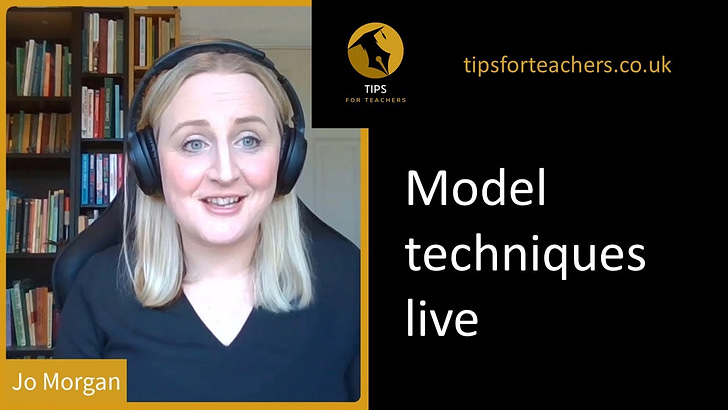#8 Ask your students: “What was the most useful thing I did today?”
It could give you very valuable feedback
Hello, and welcome to the Tips for Teachers newsletter. For over 400 ideas to try out the very next time you step into the classroom, check out my Tips for Teacher book.
💡 A quick tip to try in class this week 💡
Primary teacher, Emma Turner explained how one of her favourite questions to ask her students at the end of a lesson is: what was the most useful thing I did today?
Now, of course, we need to be aware of the dangers of relying on self-report and student preference, but I like the emphasis on useful instead of favourite.
Emma is specifically interested in the part of the lesson where students felt they understood. Was it the first example, or the second? Was it when Emma drew a diagram, or when she asked Lucy? Was it when she asked students to make notes, or discuss with their partners? Was it the analogy she used, or when she rephrased something?
Emma went on to say that she always learns something from her students’ responses. Moreover, she finds that year-on-year, even when teaching the same topic, different classes will give her different feedback. This allows Emma to refine her teaching to be more responsive to the needs of her students in front of her, instead of falling into the trap that I have done many times in thinking: this is the best way to explain this, so this is what I am going to do.
Emma also finds that doing this regularly makes her students more open to sharing where they were struggling because they see their teacher is also eager to learn and improve.
In terms of practicalities, Emma asks what was the most useful thing I did today at the end of the lesson, followed by a brief narration of the lesson - was it when I showed you the diagram, was it when you discussed it with your partner, etc. Emma then gets her students to vote for their choice, but this could equally be done via mini-whiteboards or post-it notes.
The key is that your students may pick up on something that you could do better that could be invisible to you. It helps us be aware of the messy relationship between what we say and what our students actually learn, and take steps to combat that.
What would you need to change to make this tip work for you?
When could you try it for the first time?
View all the Tips for Teachers shared so far
📺 A video to discuss with a colleague 📺
Maths teacher, Jo Morgan, explains why we should resist pre-made PowerPoints when modelling.
If the video doesn't play when you click on it, click here
Subscribe to the Tips for Teachers YouTube channel so you never miss a tip
👂 A podcast episode to listen to on your way home 👂
Science teacher, Adam Boxer, shares his five tips:
To make sure your students are ready to practise, use mini-whiteboards
To lower workload and build a better team ethic, make culture explicit
To reduce “choppy time” in lessons, use a Front Loaded Means of Participation and wait for Golden Silence
To make good use of data, compare to other subjects
To make homework more effective, integrate it with classwork
Listen to the podcast here.
Search for Tips for Teachers on any podcast platform (Apple Podcasts, Spotify, etc) and subscribe so you never miss an episode.
😎 Final bits and bobs 😎
Do you know someone who would enjoy this newsletter? Forward it to them, or direct them to the sign-up page here where you can also read all previous editions
Check out my Tips for Teachers book
Do you and your team want some high-quality training or coaching, with ideas you can use in your very next lesson? Book some Tips for Teachers CPD
Check out the all-new Tips for Teachers online courses
If you value my work, please consider becoming a Patreon



